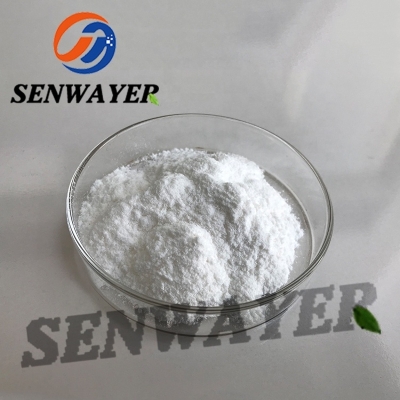-
Categories
-
Pharmaceutical Intermediates
-
Active Pharmaceutical Ingredients
-
Food Additives
- Industrial Coatings
- Agrochemicals
- Dyes and Pigments
- Surfactant
- Flavors and Fragrances
- Chemical Reagents
- Catalyst and Auxiliary
- Natural Products
- Inorganic Chemistry
-
Organic Chemistry
-
Biochemical Engineering
- Analytical Chemistry
- Cosmetic Ingredient
-
Pharmaceutical Intermediates
Promotion
ECHEMI Mall
Wholesale
Weekly Price
Exhibition
News
-
Trade Service
【Pharmaceutical Network Industry News】Alzheimer's disease (AD) is increasing rapidly with aging, and the industry expects that by 2050, the number of AD patients worldwide will grow from the current 50 million to 150 million
.
It is reported that as a degenerative disease of the nervous system, the cause of Alzheimer's disease is still unknown
.
The drugs on the market for Alzheimer's disease are also very limited, and most of them are mainly
to improve clinical symptoms.
Therefore, in the past two decades, only two new drugs have been approved for marketing, in addition to the domestic conditional approval of Green Valley Pharmaceutical Phase 9 Phase 1, as well as Biogen (Bo Jian) and Japan's Eisai AD drug Aduhelm
.
Over the years, it can be said that global pharmaceutical companies have invested huge amounts of money in research and development of the disease, but most of them have
failed.
However, there are still many pharmaceutical companies in the layout, competing for the 100 billion market
.
According to the data, as of September 21, there are 627 drugs containing Alzheimer's disease indications in global research and development, of which 249 are pre-clinical, and only 48 have entered the phase III clinical trial, and 4 are applying for marketing
.
On the whole, well-known multinational pharmaceutical companies such as Lilly, Johnson & Johnson, Roche, AbbVie, and Merck are still the main force
in the research and development of Alzheimer's disease drugs.
At the same time, the R&D pipelines of major companies around the world are almost all developed
around the two theoretical bases of "β-amyloid hypothesis" and "Tau protein hypothesis".
At present, with the development of domestic pharmaceutical innovation in full swing, many pharmaceutical companies have also begun to pay attention to this drug field
.
It is understood that in China, as of August 2021, there have been a total of 97 AD treatment projects registered for clinical trials, and 41 newly registered projects since January 2019
.
In addition to drugs that improve the clinical symptoms of AD (such as cholinesterase inhibitors, neurotransmitters), the newly registered projects mainly focus on anti-Aβ therapy, neuromodulatory therapy, traditional Chinese medicine and stem cell therapy
.
Among them, on September 9 this year, CSPC Pharmaceutical Group announced that TG103 injection, a class 1 innovative drug of biological products of the Group, has been approved by the State Drug Administration to carry out clinical trials
in China for the treatment of non-alcoholic steatohepatitis (NASH) and Alzheimer's disease (AD).
G103 injection is an innovative long-acting recombinant human glucagon-like peptide-1 (GLP-1) Fc fusion protein, which is glucagon-like peptide-1 receptor agonist (GLP-1 RA), which has a stable and effective pharmacological effect, good safety and long
drug half-life.
Its preclinical animal experiments and clinical research results of the same target drugs show that GLP-1 receptor agonists can improve the pathological changes of Alzheimer's disease, show a positive effect on the brain metabolism and cognitive function of AD patients, and play a role
in disease modification.
TG103 injection may be a potential drug to slow the progression of AD and bring clinical benefits
to AD patients.
In addition to accelerating innovation and promoting clinical trials, in fact, in the field of generic drugs, domestic pharmaceutical companies are also vigorously developing
.
As early as 2020, the State Food and Drug Administration newly approved 10 domestic pharmaceutical companies to produce Alzheimer's disease treatment drugs, namely: memangine hydrochloride, donepezil hydrochloride and carbaparatine tartrate generic drugs, and passed the consistency evaluation
.
From January to May 2021, the State Food and Drug Administration approved the generic drugs of Memantine hydrochloride from five domestic pharmaceutical companies, and passed the consistency evaluation
.
According to the current development trend, industry insiders believe that in the future, under the favorable prospects of the Alzheimer's disease drug market, more and more achievements will gradually emerge in the field of innovative drugs and generic drugs, benefiting the majority of patients
.
Disclaimer: Under no circumstances does the information herein or the opinions expressed in this article constitute investment advice
to any person.







